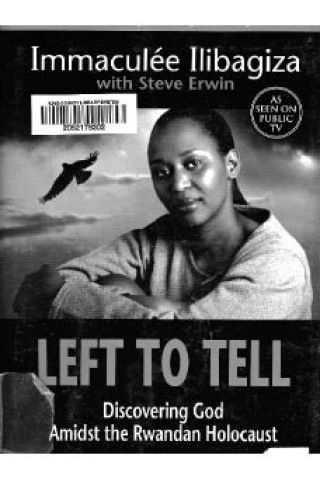After Hitler’s Holocaust, they said it couldn’t happen again. But it did. In the spring of 1994, Rwanda’s ruling Tutsi government fell to a band of Hutu extremists. For three months, Rwanda descended into one of the bloodiest and most savage genocides the world has ever seen, leaving more than one million Tutsi citizens dead.
“Left to Tell” recounts one Tutsi woman’s extraordinary tale of survival. For 91 days, Immaculee Ilibagiza lived in a tiny, secret bathroom she shared with seven other women. For 91 days, these women were not permitted to utter a word to each other for fear of discovery. For 91 days, Immaculee spent all her waking hours praying to be saved. After emerging from this bathroom, Immaculee sees for the first time the power of prayer, the existence of God and the importance of forgiveness.
This book is exceptional for many reasons and disappointing for one. First, at its core, this book highlights the complexity of human nature. Throughout this book, I was constantly asking “how does this happen?” How does it happen that one of the author’s neighbors, a lifelong family friend, could become one of her greatest threats as he vowed to find her and destroy her? How does it happen that a Hutu man kills by day and then harbors his Tutsi friend by night? How does it happen that a woman who loses her infant child, her home and her husband can laugh easily and heartily just months later within the walls of a refugee camp? This book overflows with depictions of astonishing accounts of human nature.
This book also serves as a historical record of the genocide and the conflicts in Africa at the time, with many details and facts that I had not learned previously. While this book is not for the faint of heart, it offers some worthy educational insights.
This book has its merits, but I was disappointed. One of the primary tasks for this author was to describe how she was able to forgive the Hutu men who killed her family. Possibly because this book was written by a third person to overcome the author’s language barrier, I believe she fell short of the mark. Instead, her characterizations about forgiveness felt shallow, emotionally removed and robotic.
I rated the book a “3” for this reason, but I think that this is a book that begs for a discussion. As such, I began a discussion group. To participate, please join me at www.shelfari.com. The name of this book group is called “Snoqualmie Valley Record Book Reviewer Group.”
This book has a rating of 3: Enjoyable read when there is time.
• Avid reader Dina Parker lives in North Bend.



